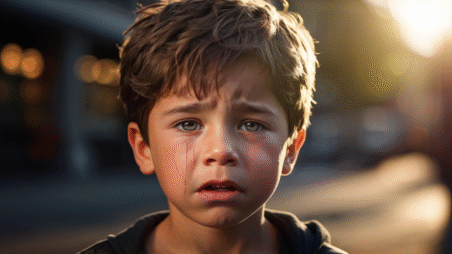French President Emmanuel Macron is keen on banning children under 15 from all social media. Digital rights activists are aghast. They claim the push is misguided and may end up doing more harm than good. Meanwhile, EU debate about social media age rules nears a crucial ministerial meeting in October.
The European Union finds itself at a loss over how to protect children online. Several member states push to raise the minimum age for social media use, some advocate an outright ban for users under 15. The issue has gained urgency amid rising concerns about minors’ mental health and online safety, drawing sharp reactions from governments, tech companies, and civil society alike.
Denmark leads push to protect children online
Since assuming the rotating presidency of the Council of the EU on July 1, Denmark has prioritised protecting children online. Danish Digital Minister Caroline Stage Olsen told Euractiv that “children under the age of 15 should not be on the social media platforms we know today,” highlighting the limitations of existing EU legislation, such as the Digital Services Act, in addressing harmful platform design.
This Scandinavian push is part of a broader wave of concern across Europe about how minors engage with digital technologies. France is actively campaigning for an EU-wide ban on social media use for those under 15, while countries including Denmark, Greece, Spain, Italy, and the Netherlands support various forms of new restrictions.
French President Emmanuel Macron intensified the debate in May, calling on the European Union to reach an agreement within “a few months” on banning under-15s from social media platforms. Otherwise, he said, France would legislate unilaterally. The comments came in May, following the fatal stabbing of a teacher by a 14-year-old student in France.
You might be interested
Commission prepares age verification tools
The French Parliament has already passed a law requiring age verification for access to pornographic websites. As a result, major adult sites, including those operated by Aylo, the parent company of Pornhub, blocked access for users in France.
In parallel with these political debates, the European Commission is working with EU countries to create an age verification app. This app will check users’ ages using a photo ID and a selfie. It will also have features like parental controls and limits on certain apps for kids.
The app is to launch during the summer of 2025. It will help confirm if someone is over 18 before they can access websites with adult content like gambling or pornography. The app will support different languages and will work with a bigger system called the EU Digital Identity Wallet, which is likely to have arrived by the end of 2026. This wallet will be a single digital ID for people across Europe to access many online services safely. Until the wallet is ready, the age verification app will serve as a temporary tool to protect children online better.
Warnings against overreach, exclusion
Civil society groups caution against a blanket social media ban for under-15s, raising concerns about privacy, exclusion, and proportionality.
Ella Jakubowska, Head of Policy at European Digital Rights (EDRi), told EU Perspectives that France’s proposal to use age verification to lock young people out of social media is “misguided, impractical, and potentially more harmful than helpful.”
“Current age verification systems are technically infeasible, lacking vital protections for privacy, data protection and cybersecurity.” – Ella Jakubowska, Head of Policy at EDRi
She raised concerns about the risk of exclusion for individuals without formal identity documents or modern digital devices. “This includes young people, undocumented people, historically marginalised communities and those without the latest smartphones or with low levels of digital literacy, like older people. I don’t see any government seriously addressing the risk of locking a huge number of people out of the internet.”
No silver bullets
Jakubowska also questioned the proportionality of forcing platforms to verify all users. “Given that the EU’s GDPR and DSA already allow social media platforms to use age verification in some high-risk circumstances—and so long as the system is necessary and proportionate—France’s attempts seem to be both a legal duplication and an overreach.” She considers that requiring universal identification could have a chilling effect on legitimate online expression.
“Instead of bans, lawmakers should focus on tackling the social media business models that profit from manipulating, harming and controlling their users.” – Ella Jakubowska, Head of Policy at EDRi
She warned against governments looking for “silver bullets” instead of tackling systemic harms. Much research shows that social media can be beneficial for young people. Instead of bans, lawmakers should focus on tackling the “social media business models that profit from manipulating, harming and controlling their users.”
Crucial October summit
Looking forward, Denmark’s Presidency has announced that an informal meeting of EU digital ministers on 9–10 October will discuss child protection online as its sole topic. As debates continue across the Council and Commission, political, legal, and technical challenges remain unresolved. The outcome will be crucial in shaping the future of social media regulation across Europe and the digital lives of millions of young users.











